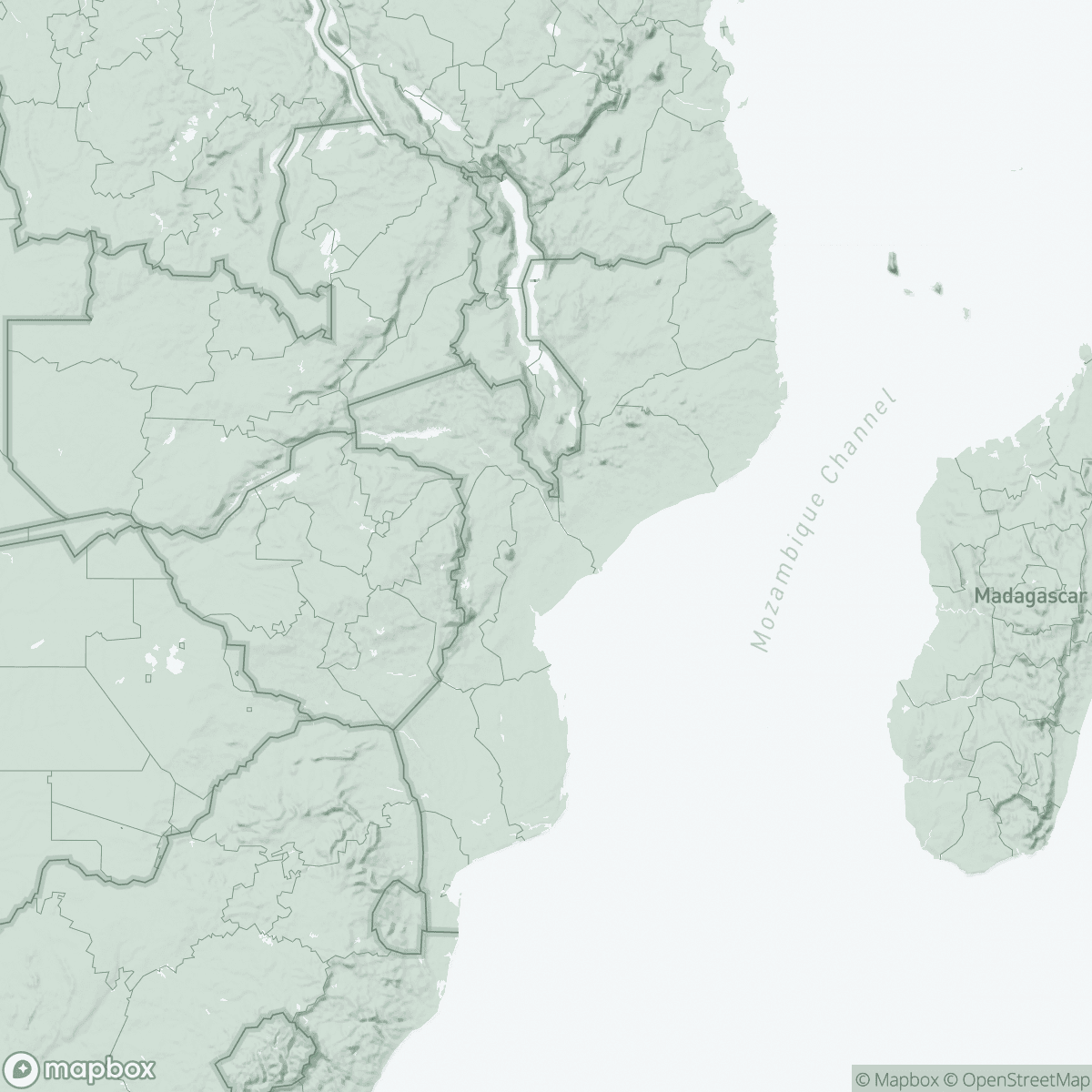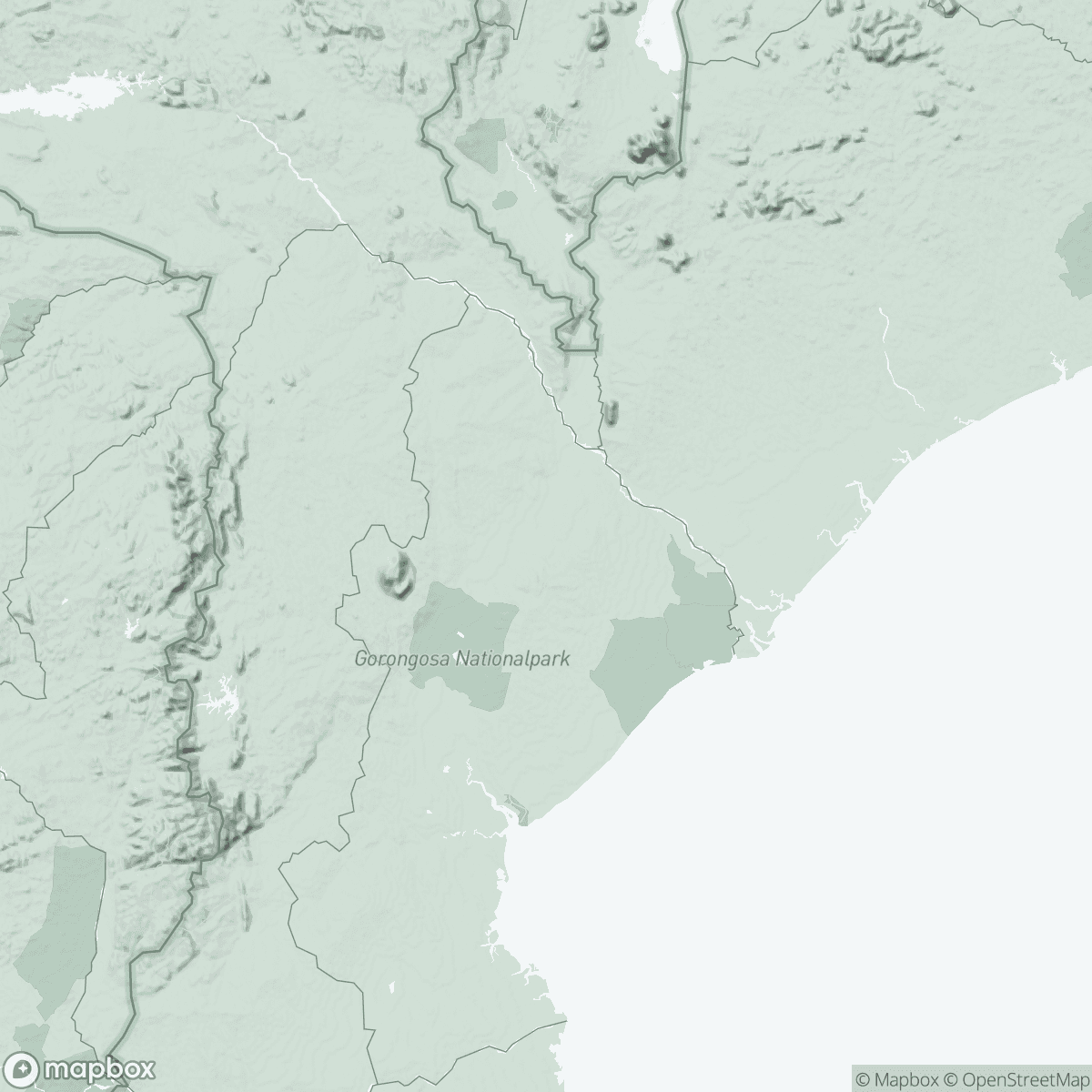
Mozambique
Médecins Sans Frontières (MSF) has been working in Mozambique for 40 years, filling crucial healthcare gaps, such as in treatment for HIV, and assisting people affected by conflict and natural hazards.
Security landscape and humanitarian situation in northern Mozambique
Last updated: December 16, 2025
The eight-year-long conflict in northern Mozambique has been sharply deteriorating in recent months, with violence expanding beyond Cabo Delgado into neighbouring provinces like Nampula and Niassa. There are clashes between armed forces and the non-state armed group; the latter has also been increasing its targeted attacks against civilians. This has uprooted communities, triggering repeated displacement and widespread insecurity. People lack consistent access to food, adequate shelter, safe water, healthcare, protection and other essential services.
Since the start of the conflict in October 2017, more than 6,000 people have been killed. This year 2025 is now the most violent one on record in terms of number and frequency of security incidents. More than 500 incidents occurred in the first eight months of 2025, including brutal assassinations, kidnappings, lootings and arson. Source (ACLED)
Over the last eight years, more than one million people – about a third of the population of Cabo Delgado – have been forced to flee their homes. About half of them remain displaced. Since late July, Cabo Delgado and other areas of northern Mozambique have experienced devastating levels of violence and an increased frequency of attacks, which have forced about 300,000 people to flee their homes. Source (IOM).
HIV, TB and malaria remain among the leading causes of death in the country; in northern Mozambique, the ongoing conflict has exacerbated the situation, disrupting healthcare services, limiting access to diagnostics and treatment, and worsening outbreaks. Management of chronic disease is frequently disrupted, with pediatric formulations for HIV and TB inconsistently available, further endangering vulnerable populations.
MSF's activities in Mozambique
MSF has been working in Mozambique since 1984, often alongside health authorities and other partners. For over 40 years, MSF teams have responded to medical and humanitarian needs countrywide.
Today MSF is only present in northern Mozambique. We have worked in Cabo Delgado province since 2019. Currently, we run regular projects in Mocímboa da Praia, Macomia and Palma.
General activities: We provide outpatient consultations, emergency care, maternity and paediatric services, treatment for HIV and TB, as well as mental health and psychosocial support. We run mobile clinics and outreach activities, refer patients to health centres and support the Ministry of Health medical facilities and hospitals.
MSF teams regularly run emergency interventions, most often in response to mass displacement, cyclones and cholera outbreaks.
In the first half of 2025, MSF teams in Cabo Delgado carried out :
outpatient consultations
mental health group sessions
MSF activities by region
Last updated: December 16, 2025
Our activities in 2024 —
outpatient consultations
malaria cases treated
individual mental health consultations
people receiving HIV antiretroviral treatment
In Cabo Delgado province, 580,000 people remained displaced due to ongoing conflict and unrest.
Our teams continued to provide healthcare through community-based activities and support to health facilities in the districts of Palma, Mocímboa da Praia, Macomia, Mueda, Muidumbe, and Nangade.
In May 2024, Macomia was attacked by an armed group; MSF’s warehouse was looted, and our cars stolen. This attack and the increased insecurity forced us to suspend our work in Macomia town, temporarily cease running our mobile clinics and outreach activities in the district, and reduce some services in other areas of Cabo Delgado.
In December 2024, we launched an emergency response in the Mecúfi and Nanlia districts of northern Mozambique, following the devastation caused by Cyclone Chido, which affected over 680,000 people. Our response focused on providing lifesaving emergency healthcare, mental health support, rehabilitating damaged health facilities, and restoring essential water, sanitation, and hygiene services.

In Nampula province, MSF teams diagnosed and treated neglected tropical diseases (NTDs) at rural health centres, and provided blood transfusions for people suffering from severe malaria. In November, we launched a surgery campaign in Nametil to assist patients with hydrocele, a complication of filariasis, an NTD which causes an abnormal accumulation of fluid in the testicles. We performed surgical activities during the first weeks of the month; however, we had to suspend all activities in Nametil by the end of November due to escalating security incidents.
In Sofala province, our team in Beira worked with the Ministry of Health and local organisations to deliver sexual and reproductive healthcare, including safe abortion care for vulnerable and stigmatised groups, treatment for people with advanced HIV, and support for addressing antimicrobial resistance.

